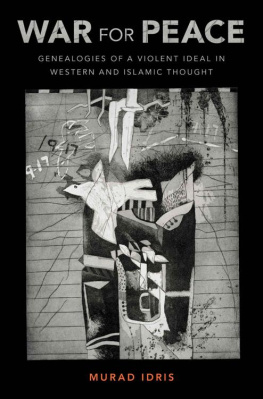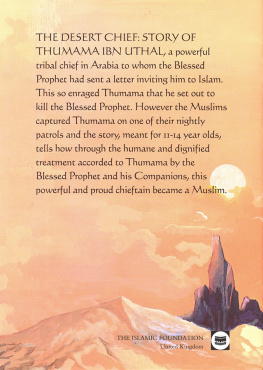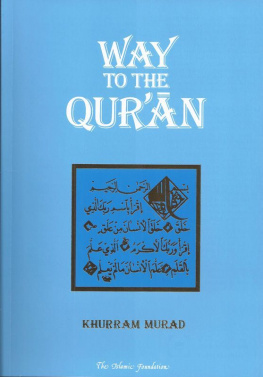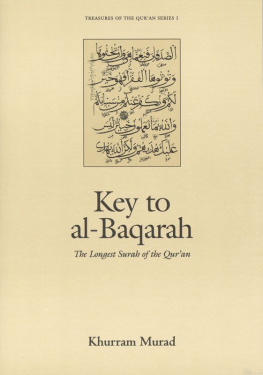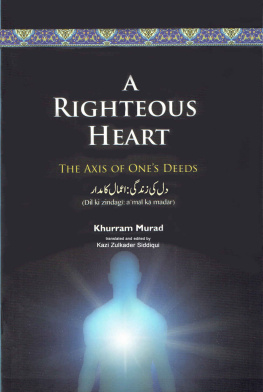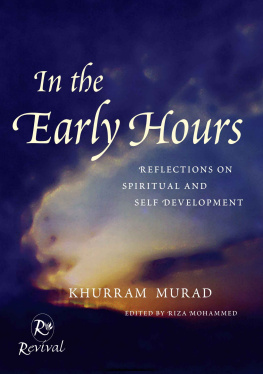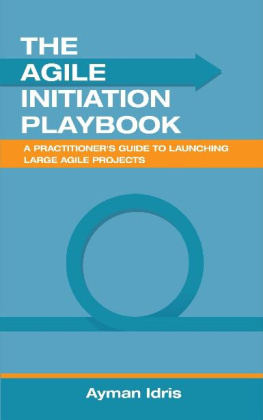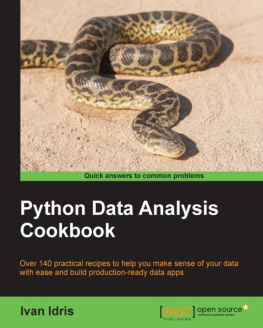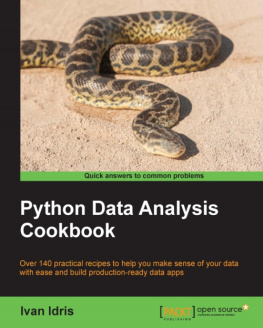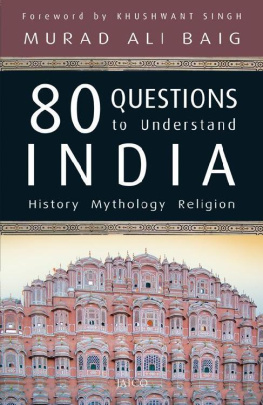Murad Idris - War for Peace
Here you can read online Murad Idris - War for Peace full text of the book (entire story) in english for free. Download pdf and epub, get meaning, cover and reviews about this ebook. year: 2018, publisher: Oxford University Press, genre: Politics. Description of the work, (preface) as well as reviews are available. Best literature library LitArk.com created for fans of good reading and offers a wide selection of genres:
Romance novel
Science fiction
Adventure
Detective
Science
History
Home and family
Prose
Art
Politics
Computer
Non-fiction
Religion
Business
Children
Humor
Choose a favorite category and find really read worthwhile books. Enjoy immersion in the world of imagination, feel the emotions of the characters or learn something new for yourself, make an fascinating discovery.
- Book:War for Peace
- Author:
- Publisher:Oxford University Press
- Genre:
- Year:2018
- Rating:4 / 5
- Favourites:Add to favourites
- Your mark:
- 80
- 1
- 2
- 3
- 4
- 5
War for Peace: summary, description and annotation
We offer to read an annotation, description, summary or preface (depends on what the author of the book "War for Peace" wrote himself). If you haven't found the necessary information about the book — write in the comments, we will try to find it.
War for Peace — read online for free the complete book (whole text) full work
Below is the text of the book, divided by pages. System saving the place of the last page read, allows you to conveniently read the book "War for Peace" online for free, without having to search again every time where you left off. Put a bookmark, and you can go to the page where you finished reading at any time.
Font size:
Interval:
Bookmark:
MURAD IDRIS


Oxford University Press is a department of the University of Oxford. It furthers the Universitys objective of excellence in research, scholarship, and education by publishing worldwide. Oxford is a registered trade mark of Oxford University Press in the UK and certain other countries.
Published in the United States of America by Oxford University Press
198 Madison Avenue, New York, NY 10016, United States of America.
Oxford University Press 2019
All rights reserved. No part of this publication may be reproduced, stored in a retrieval system, or transmitted, in any form or by any means, without the prior permission in writing of Oxford University Press, or as expressly permitted by law, by license, or under terms agreed with the appropriate reproduction rights organization. Inquiries concerning reproduction outside the scope of the above should be sent to the Rights Department, Oxford University Press, at the address above.
You must not circulate this work in any other form and you must impose this same condition on any acquirer.
Library of Congress Cataloging-in-Publication Data
Names: Idris, Murad, 1984 author.
Title: War for peace : genealogies of a violent ideal in Western and Islamic thought / Murad Idris.
Description: New York, NY, United States of America : Oxford University Press, 2019. | Includes bibliographical references and index.
Identifiers: LCCN 2018018995 (print) | LCCN 2018035332 (ebook) | ISBN 9780190658021 (Updf) | ISBN 9780190658038 (Epub) | ISBN 9780190658014 (hardcover : acid-free paper)
Subjects: LCSH: Peace (Philosophy) | War (Philosophy)
Classification: LCC B105.P4 (ebook) | LCC B105.P4 I35 2019 (print) | DDC 327.1/72dc23
LC record available at https://lccn.loc.gov/2018018995
In the loving memory,
of twenty-six years,
for it is all that remains.
as promised, for my brother,
Mohamad Idris
19822011
it is impossible to retrace all the conversations that made this books present form possible. War for Peace has never been mine alone, even if all responsibility for faults and shortcomings is. I began writing what became this book at the University of Pennsylvania. From Philadelphia, the manuscript traveled with me to Ithaca, New York City, Cambridge, MA, and Charlottesville. Along the way, I have incurred more debts than I can recount here.
My first thanks go to Anne Norton, my teacher. For her guidance, support, friendship, and so much more, she always has my deepest gratitude. She is a constant source of inspiration; working with her is an honor. At Penn, I was fortunate to be surrounded by supportive faculty who created a rare intellectual world. Jeffrey Green, Nancy Hirschmann, and Joseph Lowry have been generous interlocutors, critical and helpful, always pushing the manuscript in productive directions. Ellen Kennedy, Bob Vitalis, Ian Lustick, and Roger Allen introduced me to new worlds of thinking. Since graduate school, Nicholas Harris, Rose Muravchick, Elias Saba, and Chris Taylor have provided both friendship and intellectual companionship. They have helped me think through so many questions essential to this book over the years. I am forever in their debt. Elias took on the task of copyediting the final manuscript, and Nick of completing the final proofs and index; they have been with this book from inception to end, and with me throughout. Asma al-Nasser, Nesrine Chahine, Ola Shtewee, Omar al-Ghazzi, Ameed Saabneh, and Adam Miyashiro made Philly feel like home.
At Cornell University, the examples and hospitality of Peter Katzenstein, Mary Katzenstein, Gerard Aching, Leslie Adelson, Richard Bensel, Jason Frank, Isaac Kramnick, David Powers, and Shawkat Toorawa made my time in Ithaca a precious gift. Nicole Giannella and Suman Seth read multiple chapter drafts, and they both continue to enrich my life with their friendship and brilliance. In New York City, the Columbia Society of Fellows in the Humanities, under the guidance of Eileen Gillooly and Christopher Brown, brought together an amazing group of scholars; my fellow fellows Maggie Cao, Brian Goldstone, Hidetaka Hirota, and Grant Wythoff left a mark on this project, and Willy Deringer, Dan-el Padilla Peralta, and Rebecca Woods consistently went above and beyond. The Mahindra Humanities Center at Harvard University provided a biweekly forum for thinking through crucial features of war, violence, and peace with Homi Bhabha and fellows Samuel Anderson, Hiba Bou Akar, Thiemo Breyer, Alex Fattal, Joseph Fronczak, and Ram Natarajan. At the University of Virginia, I have been fortunate to find great colleagues in the Department of Politics and in cognate fields. A special thank you to Stephen White, Lawrie Balfour, Debjani Ganguly, and Jennifer Rubenstein for their tremendous support and friendship.
I am grateful to audiences who read or heard presentations based on portions of the book. Their questions and suggestions improved it, often in unexpected directions. Portions of the manuscript were presented at the University of Pennsylvania; Cornell University; University of MassachusettsAmherst; Columbia University; Harvard University; University of Minnesota; New York University; University of Victoria; University of California, Berkeley; University of California, Santa Cruz; University of Virginia; and at the American Political Science Association, Western Political Science Association, Midwest Political Science Association, and Association for Political Theory annual meetings. In summer 2017, I taught Waging War and Ordering the World, a graduate seminar based on the book, at the Academy of Global Humanities and Critical Theory in Bologna, and I thank the seminar participants for the terrific discussions and Raffaele Laudani for the invitation.
Conversations with Roxanne Euben helped me sharpen my argument, and her feedback proved essential. She has been an important interlocutor; for that, I am grateful. Joseph Massads suggestions and encouragement have been essential to my intellectual growth, and he continues to be a source of inspiration. Reading Massads Colonial Effects and Eubens Enemy in the Mirror as an undergraduate were two critical milestones in my trajectory; it is an honor now to think with their authors. Jill Frank generously gave line-by-line suggestions for . As I rewrote the manuscript, Kevin Duong meticulously read and commented on nearly every chapters opening pages; for making the manuscript sharper and clearer, I and in turn the reader are grateful to him. I am also deeply grateful to Leigh Jenco and Megan Thomas, for their friendship and understanding, especially when working on this book overtook other commitments.
Many colleagues offered valuable comments on portions of the manuscript, pointed me to key sources, or helped me work through an argument. Thanks to Oxford University Presss anonymous readers and to Banu Bargu, David Bateman, Teresa Bejan, Nolan Bennett, Fahad Bishara, Ben Breen, Charles Brittain, Michaelle Browers, Samera Esmeir, Shawn Fraistat, Leela Gandhi, Simon Gilhooley, Michael Gorup, Sinja Graf, Kathleen Harbin, Ulas Ince, David Johnston, Pinar Kemerli, Helen Kinsella, Jimmy Casas Klausen, Hagar Kotef, Nadim Khoury, Alex Livingston, Andrew March, Inder Marwah, Alison McQueen, Uday Mehta, Emily Nacol, Vijay Phulwani, Elissa Sato, Vanita Seth, Rogers Smith, Levi Thompson, Max Tomba, Meral Ugur Cinar, and Ali Wick.
Font size:
Interval:
Bookmark:
Similar books «War for Peace»
Look at similar books to War for Peace. We have selected literature similar in name and meaning in the hope of providing readers with more options to find new, interesting, not yet read works.
Discussion, reviews of the book War for Peace and just readers' own opinions. Leave your comments, write what you think about the work, its meaning or the main characters. Specify what exactly you liked and what you didn't like, and why you think so.

